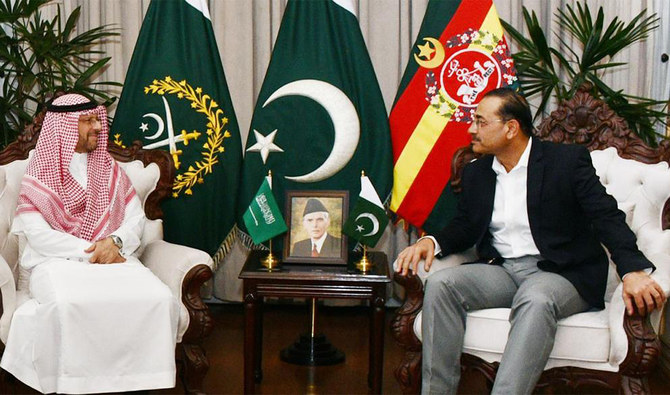ISLAMABAD: Pakistan’s army chief, General Asim Munir, on Friday held a meeting with the leader of Saudi Arabia’s armed forces, General Fayyadh Bin Hamed Al Ruwaili, and discussed strengthening bilateral cooperation in defense and security affairs, the army’s media wing said.
Pakistan and Saudi Arabia share strong defense ties and security cooperation. An annual tradition involves cadets from the Kingdom, along with counterparts from other Middle Eastern nations, visiting Pakistan to undergo specialized army training. The two nations regularly engage in joint military exercises.
On September 9, Pakistan and Saudi Arabia launched a joint naval exercise near the Kingdom’s Al Jubail city and in August the two countries launched an inaugural joint special forces exercise to benefit from each other’s counterterrorism expertise.
“During the meeting, both sides deliberated upon various areas of mutual interest and bilateral cooperation, including defense and security matters,” the army’s media wing said of the meeting between the two generals.
A day ago, General Al-Ruwaili visited Pakistan’s Naval Headquarters in Islamabad and met a senior Pakistan Navy official.
“The visiting dignitary appreciated and acknowledged Pakistan Navy’s efforts and commitments in support of collaborative maritime security in the region,” a statement from the Navy said on Thursday.
Riyadh and Islamabad also enjoy close cooperation in trade, economy, culture, information, and investment. Pakistani expats living in Saudi Arabia are the largest source of remittances to the South Asian nation.












